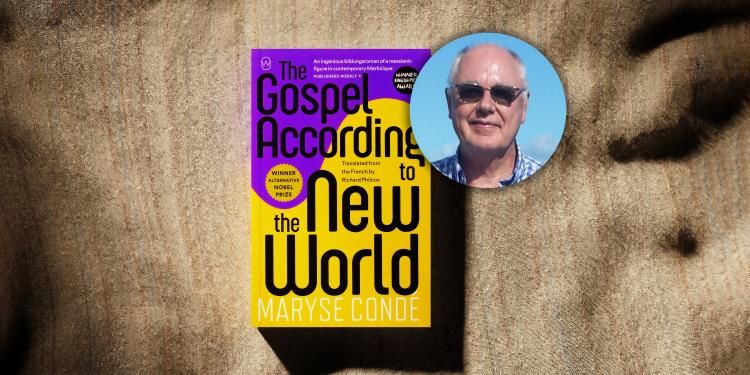
Maryse Condé interview: ‘After losing my vision, I wrote each chapter in my head’
Shortlisted for the International Booker Prize 2023, author Maryse Condé talks about The Gospel According to the New World in an exclusive interview

With The Gospel According to the New World shortlisted for the International Booker Prize 2023, Richard Philcox talks about his path to becoming a literary translator – and working with his wife
Read interviews with all of the International Booker Prize 2023 authors and translators here.
How does it feel to be shortlisted for the International Booker Prize 2023 – an award which recognizes the art of translation in such a way that the author and translator share the prize equally should they win – and what would winning the prize mean to you?
Very little importance is granted to translated fiction and all too often the translator remains invisible. The International Booker Prize gives voice to the translator and his translation and opens up new horizons for the winner.
How long did it take to translate the book and what does your working process look like? Do you read the book multiple times first? Do you translate it in the order it is written?
The book took roughly six months to translate. As husband of the author, I read the book first, locating the potential problems for translation. Since we travel together, listen to the same music, and knowing where the author’s inspiration comes from, my working process is helped by all these factors as well as the sound of her voice, which I hear every day.
What was the experience working with the author like? How closely did you work together? Was it a very collaborative process? Were there any surprising moments during your collaboration or joyful moments or challenges?
Even though the book was dictated, I didn’t start translating it until Maryse was satisfied with the final version. A translation can be considered a work of literature on its own and Maryse has always said it’s the translator who becomes the author. There was very little collaboration between us, except when I needed to ask questions about the author’s poetic license and the ambiguity of the French language. Translating Caribbean fauna and flora is a challenge which fortunately can be solved by the many dictionaries and glossaries on the subject we have in English.
Richard Philcox
My working process is helped by the sound of [Maryse’s] voice, which I hear every day
Aside from the book, what other writing did you draw your inspiration from for your translation?
I naturally drew my main inspiration from the New Testament as the novel re-imagines some of the miracles. As I said, having lived in the Caribbean for many years, the landscapes, the sea, mountains, fauna and flora described in the novel were very familiar to me.
What was your path to becoming a translator of literary fiction? What would you say to someone considering translation as a career for themselves?
I started out as a technical translator with Kodak-Pathé in Paris and while working there, began translating Maryse’s first novel, Heremakhonon. It was really a labour of love and the more she wrote, the more I wanted to introduce her to English-speaking readers. It was difficult changing over from technical texts to literary ones where metaphors and imagery had to take precedence over the exactitude of technical manuals. The theories on translation throughout the centuries have always interested me and while in the US I introduced many of them into my teaching of translation.
It is difficult making a living out of literary translation and consequently, many translators survive by teaching. I would advise any potential translator to enroll in a school for translation or at least study comparative literature and translation at the university level.
Why do you feel it is important for us to celebrate translated fiction?
Because translation is not getting the celebrations it merits. I have always thought that one day the Nobel Literature Prize should go to a translator.
If you had to choose three works of fiction that have inspired your career the most, what would they be and why?
To the Lighthouse by Virginia Woolf, because she inspired me to translate Maryse Condé’s novel Crossing the Mangrove.
The Viceroy of Ouidah by Bruce Chatwin, because he inspired me to translate Maryse Condé’s novel The Last of the African Kings.
Cahier d’un retour au pays natal by Aimé Césaire, because he inspired me to translate Black Skin, White Masks and The Wretched of the Earth by Frantz Fanon.
Maryse Condé
© P. Matsas Leemage- Hollandse Hoogte
